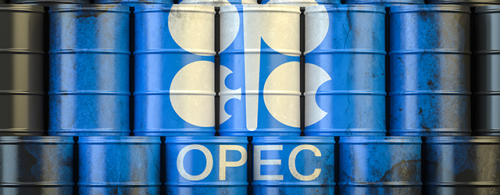OIL & GAS SECTOR INSIGHT 01/07/2022
OPEC Faces Critical Oil Production Decision as Nigeria Gets 1.826m bpd August Quota

The Organisation of Petroleum Exporting Countries (OPEC) will in August decide whether to continue its current measured oil supply to the global market or set a new quota for its members as the ration agreed upon last year expires.
This was just as the Lagos Chamber of Commerce and Industry (LCCI) yesterday decried that crude oil theft in the country had taken a worrisome dimension in the Niger Delta and has led to a spike in international oil companies’ (IOCs) production costs to $32 per barrel, adding that losses from pipeline vandalism and theft were overwhelming IOCs operating in Nigeria.
The international oil cartel, in the same vein, yesterday allocated Nigeria a fresh oil quota of 1.826 million barrels per day for August, although the country’s May production, obtained by primary communication channel, was a paltry 1.024 million bpd.
If things remain the way they were last month, Nigeria could post a record 802,000 bpd production deficit by August, given that it barely managed to drill 1 million bpd in May.
In addition, OPEC and its non-OPEC partners known as OPEC+ after the conclusion of its 30th ministerial meeting, decided to stay the course with its production policy for the month.
The Sanusi Barkindo-led organisation agreed to increase its monthly overall production for the month of August to 648,000 barrels per day, slowly returning the nearly 10 million barrels per day it agreed to pull from the market in April 2020.
Aside Nigeria, which got about 26,000 bpd hike for August, Angola was allocated 1.525 million barrels per day while Algeria was allocated 1.055 million bpd.
Outside Africa, OPEC leader Saudi Arabia got a production ration of 11.004 million bpd, same as Russia, with an expected 26.689 million bpd by the OPEC 10, while non-members will produce 17.165 million bpd to hit 43.854 million bpd for the month.
This emerged just as the international benchmark Brent crude futures traded 0.5 per cent lower at $115.74 a barrel, while the United States West Texas Intermediate futures traded 0.8 per cent lower at $108.93 on Thursday.
Although it argued that the expected decision to drill more oil would free up some of its members that have spare capacity to boost production in September if they choose, however, OPEC’s spare capacity remained in doubt.
OPEC further announced that it was set to hold its next meeting on August 3, which will determine September production plans.
A statement after the meeting stated that in view of current oil market fundamentals and the consensus on its outlook, the OPEC and participating non-OPEC oil producing countries agreed to stick with the plan it agreed upon in April 2020 and which was reaffirmed in July 2021.
“(We) reconfirm the production adjustment plan and the monthly production adjustment mechanism approved at the 19th and 29th OPEC and non-OPEC Ministerial Meetings and the decision to adjust upward the monthly overall production for the month of August 2022 by 0.648 mb/d.
“(And) reiterate the critical importance of adhering to full conformity and to the compensation mechanism. Compensation plans should be submitted in accordance with the statement of the 15th OPEC and non-OPEC ministerial meeting,” it said.
Nigeria has continued to struggle with meeting its oil production quota, with the country’s underperformance coming to as high as 700,000 barrels per day for last month, although the cartel’s total allocation to Nigeria exceeded 1.75 million bpd for the month.
The 1.024 million bpd production (through primary communication) was about 195,000 bpd less production when compared with the April’s total of 1.219 million bpd, OPEC said.
Despite assurances by the various government agencies, what the OPEC figures imply is that rather than improve, the country’s oil production has actually deteriorated in the past months.
On the issue of theft, the federal government had also months ago, deployed heavy military presence in the Niger Delta to curb the menace.
But the OPEC data confirmed that the action has not made any difference, as nothing appears to have changed since the rejigging of the security arrangement in the region.
Added to that, despite a barrel now selling for over $120, Nigerians are not feeling the impact since it cannot meet its production allocation and the meagre revenue from the little it is producing goes into petrol subsidy payment.



